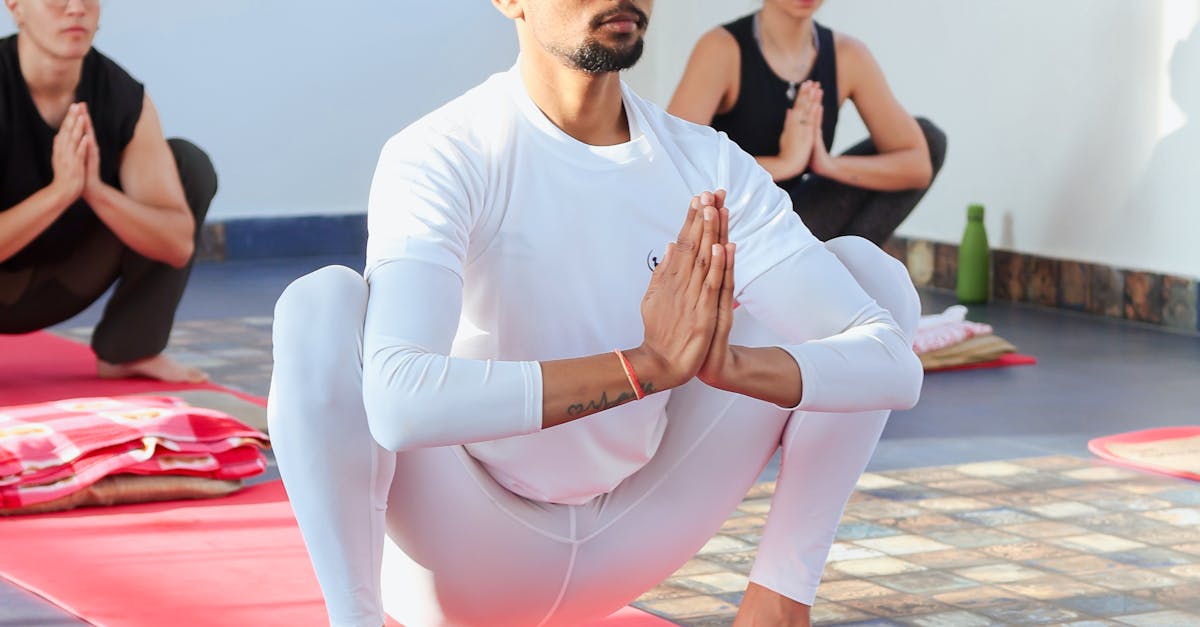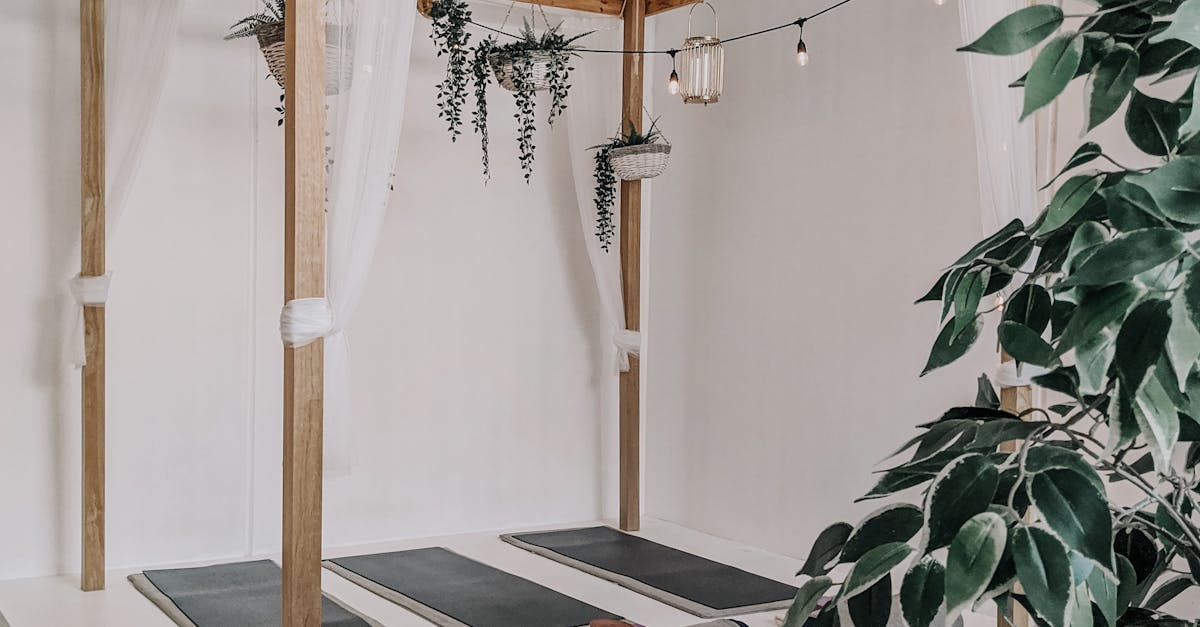
Creating the Right Environment for Intimate Yoga
Creating the right environment for intimate yoga is essential for fostering a deep connection between participants. A serene setting can enhance the overall experience, reducing distractions and allowing participants to focus on their practice. Natural light and soft, ambient music can help create a calming atmosphere. Comfortable props, such as mats and blankets, are crucial for providing physical support. It is important to arrange the space in a way that encourages closeness without overwhelming the senses.
Private yoga sessions often provide a unique opportunity to personalize the environment further. Participants can choose a location that resonates with them, whether it’s a quiet room in their home or a peaceful outdoor setting. The ambiance should invite vulnerability and trust, enabling individuals to explore their movements and emotions fully. Incorporating elements like candles or incense can also enhance the sensory experience, making it more engaging and intimate. This tailored approach helps to deepen the bonds formed during practice.
Setting Up a Space for Connection
Creating an inviting and comfortable environment is essential for fostering a deep sense of connection during intimate yoga practices. Begin by selecting a quiet space that allows participants to feel safe and relaxed. Soft lighting, such as candles or fairy lights, can enhance the ambiance while calming music might help to set a serene mood. Ensure that the space is clean and clutter-free. Incorporating elements like cushions, blankets, and soft mats can provide comfort, making the experience more enjoyable for everyone involved.
In private yoga sessions, intentional touches can further enhance the feeling of intimacy and trust. Consider adding personal items that resonate with the participants, such as meaningful decor or aromatherapy diffusers with calming essential oils. Setting up the space in a circular or semi-circular arrangement can encourage connection and promote a sense of unity. This thoughtful approach helps create an atmosphere where individuals can open up emotionally and connect more profoundly with themselves and each other.
Benefits of Practicing Intimate Yoga
Intimate yoga offers numerous benefits that extend beyond physical fitness. Practitioners often experience enhanced emotional connection with partners. This connection stems from shared mindfulness and breathing techniques, fostering a deeper bond through synchronized movement. Private yoga sessions cultivate an atmosphere of trust and intimacy, allowing participants to explore vulnerabilities safely. These practices can lead to increased comfort and communication between partners, which enhances their overall relationship.
The spiritual gains associated with intimate yoga cannot be overlooked. Engaging in such practices encourages a greater understanding of oneself and one’s partner, promoting self-awareness and spiritual growth. Through private yoga sessions, couples can discover new dimensions of their relationships and connect on a level that might not be achieved in traditional yoga classes. This holistic approach nurtures both individuals and the partnership, creating a harmonious balance of mind, body, and spirit.
Physical, Emotional, and Spiritual Gains
Engaging in intimate yoga offers a variety of physical, emotional, and spiritual benefits that can enhance one's overall well-being. Participants often notice improvements in flexibility, strength, and balance as they explore poses designed for deeper connection and mindfulness. Private yoga sessions allow for personalized attention, making it easier to adapt postures to each person's unique body and comfort level. This tailored approach leads to a greater understanding of one's physical limits and capabilities.
On an emotional and spiritual level, intimate yoga fosters trust and vulnerability, encouraging participants to be open with themselves and their partners. This practice creates a safe space for expressing feelings, promoting emotional healing and deeper interpersonal connections. The meditative aspects of these sessions can also lead to enhanced self-awareness and mindfulness, allowing individuals to tap into their inner selves and cultivate a greater sense of peace.
Common Misconceptions About Intimate Yoga
Intimate yoga often faces misconceptions that can cloud its true essence. Many people equate it solely with romantic or sexual undertones, which misrepresents the practice. Intimate yoga is more about fostering a deeper connection with oneself and with a partner, focusing on vulnerability and trust. Participants frequently explore their emotional and physical boundaries, leading to significant personal growth rather than purely sensual experiences.
Some may also believe that intimate yoga requires advanced skills or flexibility. However, this practice is accessible to individuals of all levels, and Private Yoga Sessions can be tailored to meet specific needs and comfort zones. The focus is on creating a safe space where everyone can feel supported and encouraged, breaking down barriers and allowing for personal expression. Engaging in this practice can cultivate mindfulness and strengthen relationships without the pressure of high-performance expectations.
Debunking Myths and Stereotypes
Intimate yoga often faces skepticism due to misconceptions surrounding its nature and purpose. Many individuals mistakenly assume that these practices are overly sexualized or intended solely for couples. In reality, intimate yoga focuses on creating a safe and nurturing environment that fosters connection, communication, and trust. The practice encourages participants to explore emotional bonds and physical touch in a respectful manner, emphasizing consent and personal boundaries.
Another common stereotype is that intimate yoga is only accessible to couples or those in romantic relationships. This notion overlooks the reality that private yoga sessions can benefit individuals seeking a deeper understanding of themselves or those looking to strengthen friendships. By participating in intimate yoga, individuals can cultivate mindfulness and enhance emotional awareness, regardless of their relationship status. This practice welcomes anyone who is open to self-exploration and connection with others.
FAQS
What is intimate yoga commonly referred to?
Intimate yoga is often referred to as "partner yoga" or "couples yoga," emphasizing the connection between partners during their practice.
How do I create the right environment for intimate yoga?
To create the right environment for intimate yoga, choose a quiet, comfortable space with soft lighting, calming scents, and minimal distractions to enhance connection and relaxation.
What are the benefits of practicing intimate yoga?
Practicing intimate yoga can improve physical flexibility, foster emotional intimacy, and enhance spiritual connection, leading to a deeper bond between partners.
Are there common misconceptions about intimate yoga?
Yes, some common misconceptions include the belief that intimate yoga is solely about sexual activity or that it requires advanced yoga skills, both of which are false.
Can anyone practice intimate yoga?
Yes, anyone can practice intimate yoga, regardless of their skill level or experience, as it focuses on connection and communication rather than advanced poses.
